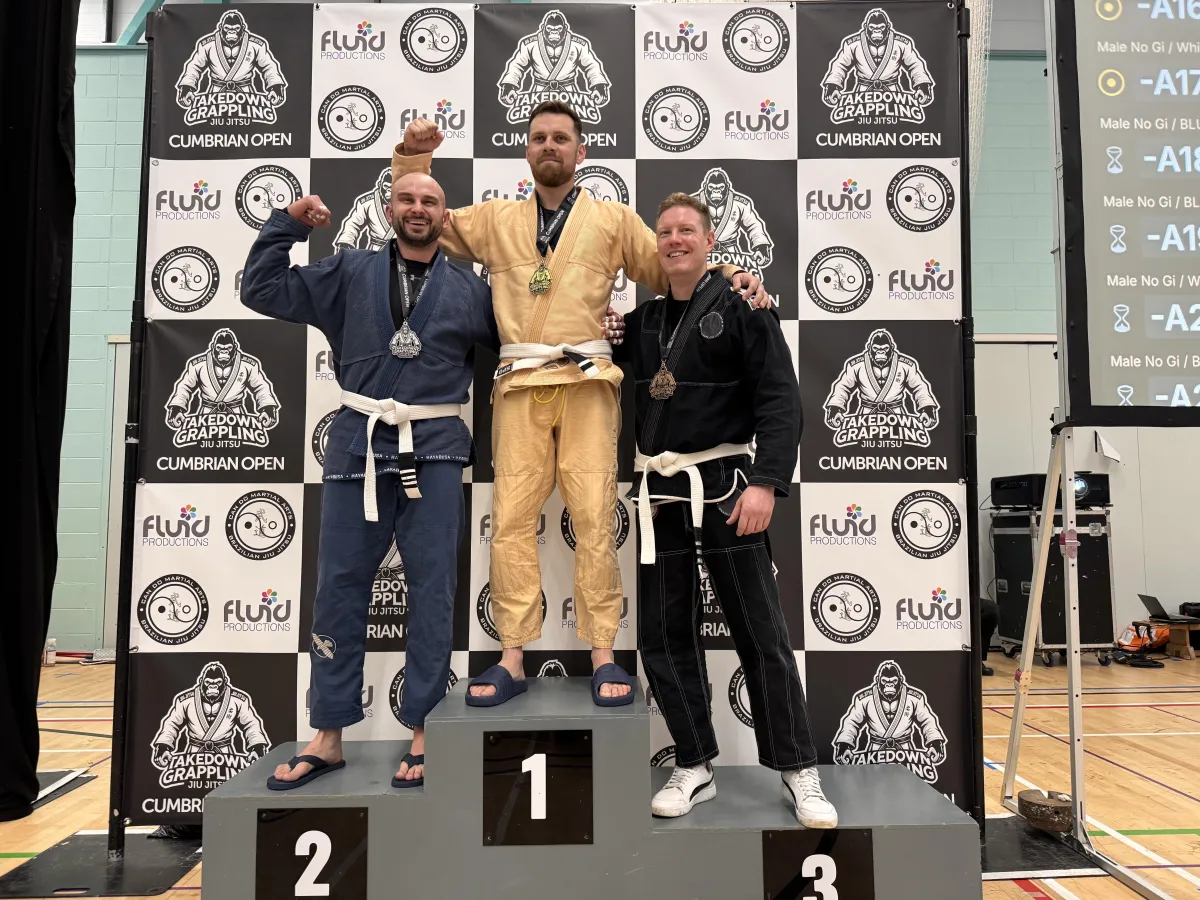
What does competition teach us?
"Who's competing then?" As you look around the dojo you see only one or two hands go up and a lot of people looking everywhere but at you. Why? Because competition is scary! But what scares us, the thought of being injured? Not being the champ? No. It's often the thought of looking silly in front of everyone else that terrifies people. However as a competitor of many years, I can tell you that is all made up in your head, no one is watching you, no one is documenting your mistakes, everyone else there is concerned about their own competition, not yours!
So once we can rationalise that the competition is not centred around us, we can start to focus on what benefits we may get from competing.
Firstly no matter how hard you train in the dojo, there is a huge difference between these sessions and the adrenaline dumping fatigue you will feel after your first tussle or performance on the competition floor. Whether you are a kata exponent or a fighter, a grappler or a boxer, the impact of your emotions and hormones feels a world apart from your in-house experience and the comfort of your familiar training place. Why is this important?

This physical experience and psychological load you will go through at a live competition brings with it increased confidence, regardless of whether you win or lose. It allows you to realise the despite feeling fatigue, and nerves like never before, you can still perform. It will reset your own expectations of what is possible for yourself in the dojo, how hard you can push yourself, and it will give you a pathway to discover what you are truly capable of. You will become fitter and have more efficacy around your own training and development each session.
The second thing competition experience helps us with is developing our training sessions so that they represent the competitive environment we will perform in more closely. The closer our training is to our actual performance environment the more beneficial it will be to our athletes. This is a key factor in skill development, and ultimately is one of the reasons competitors are usually the best martial artists, they know what real challenges look like, what problems they have to overcome and develop their training to address these areas where skill is presently lower.

Competition is a great way to reduce fear, because when you put yourself in uncomfortable situations, you develop skills to overcome those challenges, you build fortitude, you become more creative in your problem solving, and you create greater levels of resilience from these experiences, all of which develops a positive attitude towards personal growth.
Another benefit of competition is motivation. While motivation can be fleeting, having goals outside of your next grade (which can be years apart in martial arts) inspires us to delve deeper in to our understanding of the art we are practicing. We want to reduce the risk factors of an event, ensure our fitness is optimum and our knowledge of performing is maximised. So as a competitor we will set very specific goals to move ourselves forwards more frequently, much more so than most other students. We encounter personal, real life challenges and problems on the mat and have to find solutions and answers to them. This becomes a self perpetuating cycle of personal development, skill acquisition and success.

What about the medals? While medals are great, they take time to achieve. You'll be facing people who may have already have had 10, 50 or 100 competitions under their belt, so as much as we would like to win some silverware, we can't expect we should. As some one who has won many gold medals, I can tell you those are not the ones that really matter either, it is those 3rd places, 4ths and 5ths that spur you on to be better. Yes enjoy the wins, but savour the losses too, because they will set you on the path to greatness if you do not quit at the first stumble.
So next time your coach asks if you'd like to compete, before saying no, maybe just ask yourself why you are here in the first place, was it to feel safe and be the same person? Or was it to challenge yourself and grow?
Oss.
